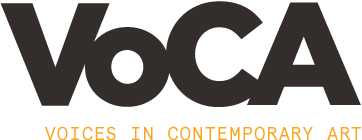This week’s contributing blogger, Claire Curran, recently completed her first summer work project at the Philadelphia Museum of Art and is entering her second year at Winterthur this fall.
The Emerging Conservation Professionals Network (ECPN) assists individuals considering the field of conservation by facilitating their transition from pre-training student, to conservation student, to conservation professional. Since 2011, ECPN has been hosting a portfolio session at the annual AIC meeting where students who are in or who have just graduated from a conservation graduate program can share their portfolios and field questions. This year, at AIC’s 41st annual meeting, The Contemporary in Conservation, the ECPN expanded the portfolio session to include a panel of five conservators who each gave a ten-minute presentation focusing either on assisting pre-program individuals with graduate school applications or helping newer conservators navigate the field post graduation. Following the presentation, the panel led a question and answer session. The concluding portion of the seminar allowed attendees to flip through the portfolios of graduate students and conservation fellows and ask questions.
The portfolio seminar began with introductions and a brief overview of each speaker’s presentation. The first presentation was given by Avigail Charnov, who spoke about how to build an architecture conservation portfolio, illustrating the different approaches taken by architectural conservators to market their unique skill set. The second presentation, given by Cher Schneider, was about building a strong digital portfolio, with details on how to best organize it and some great tips on how to make a digital portfolio “pop.” Then Gwen Manthey presented a case study highlighting how she had developed her own portfolio from pre-program to post-graduate school, demonstrating how it had changed over the years to showcase her development and experience. Presentations four and five, given by conservators Kathleen Kiefer and Suzanne Davis, were about making the transition from student to professional conservator. They provided tips on a range of subjects, such as how to prepare a CV and cover letter, and how to give a memorable interview. Each of the five presentations offered emerging conservators great advice and useful information in regard to preparing for the various stages in one’s career. The question and answer session was also a wonderful opportunity for attendees to ask specific questions pertaining to their own experiences in entering the field of conservation.
Several graduate students and conservation fellows, myself included, participated in the final portion of the seminar by sharing our pre-program and graduate portfolios with attendees and answering their questions. During my pre-program years, I found it enormously helpful to talk with graduate students about how they had designed their portfolios and received many helpful hints on the art of the graduate interview. Contributing my pre-program portfolio and sharing my own experiences was a great way to “pay it forward”; it felt quite fulfilling to be able to give back in the way that previous graduate students had done before me.
By participating in the ECPN portfolio session, I gained critical insights that will help me immeasurably in the year to come. Starting my second year at Winterthur requires my creating a graduate portfolio and interviewing for summer and third year fellowships, tasks for which I now feel much better prepared. Receiving tips on how to make a great CV and cover letter or as to the importance of negotiating salary early in your career have also proved to be very helpful. Getting first-hand advice from individuals at all stages in their conservation careers is what ECPN is about, and I am so pleased to have been able to take advantage of all the guidance shared in the panel discussion. I can only hope that ECPN will continue to offer this, as it was a great success and help for all those involved!
